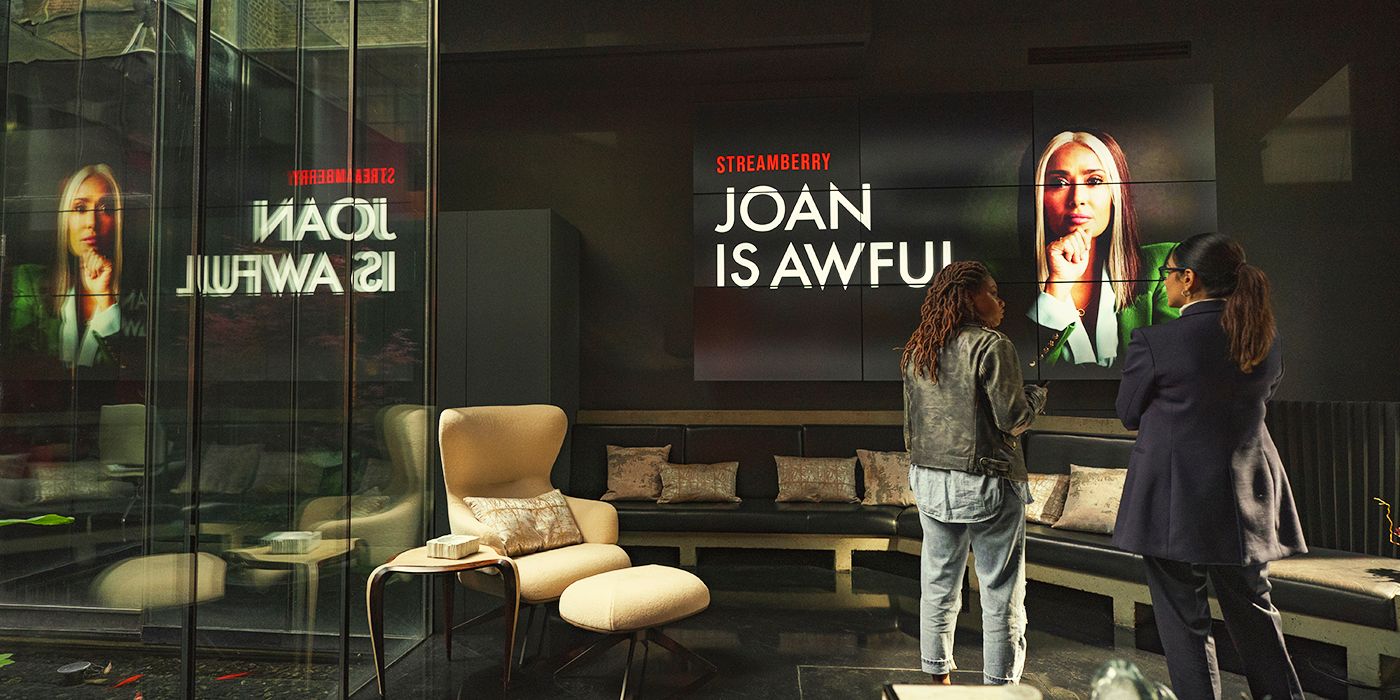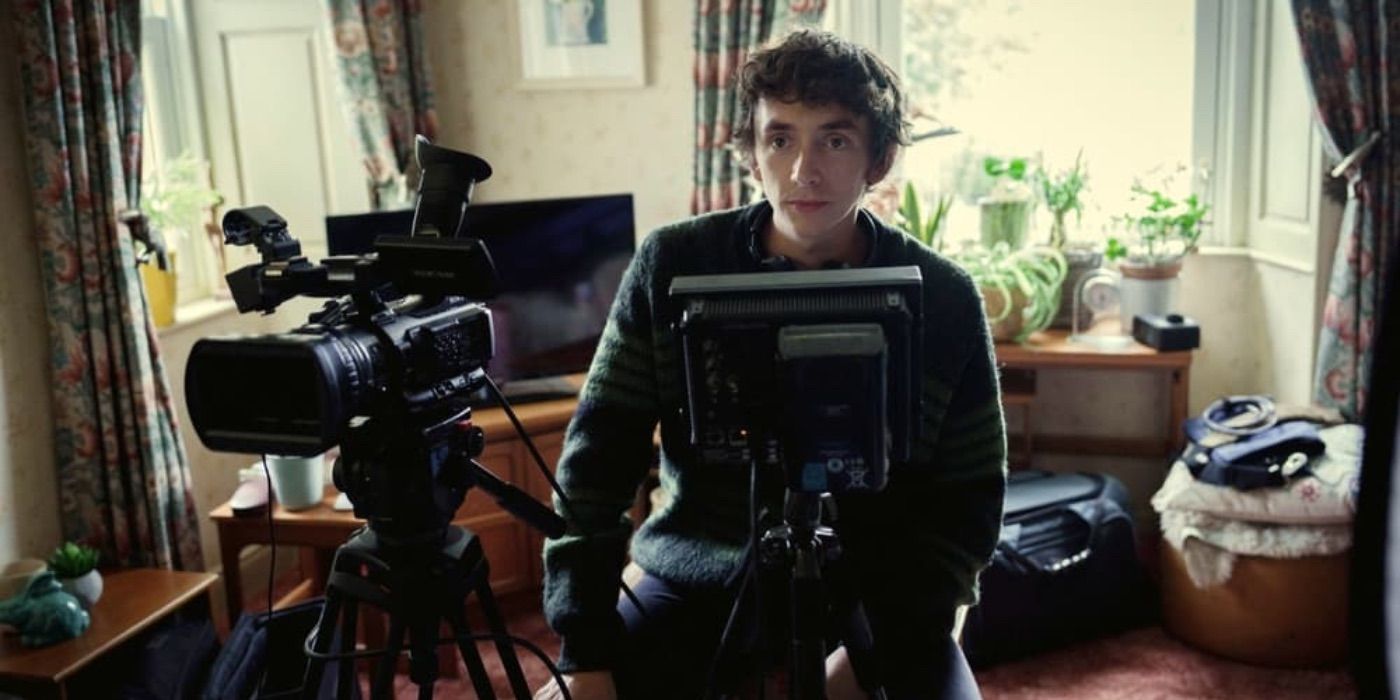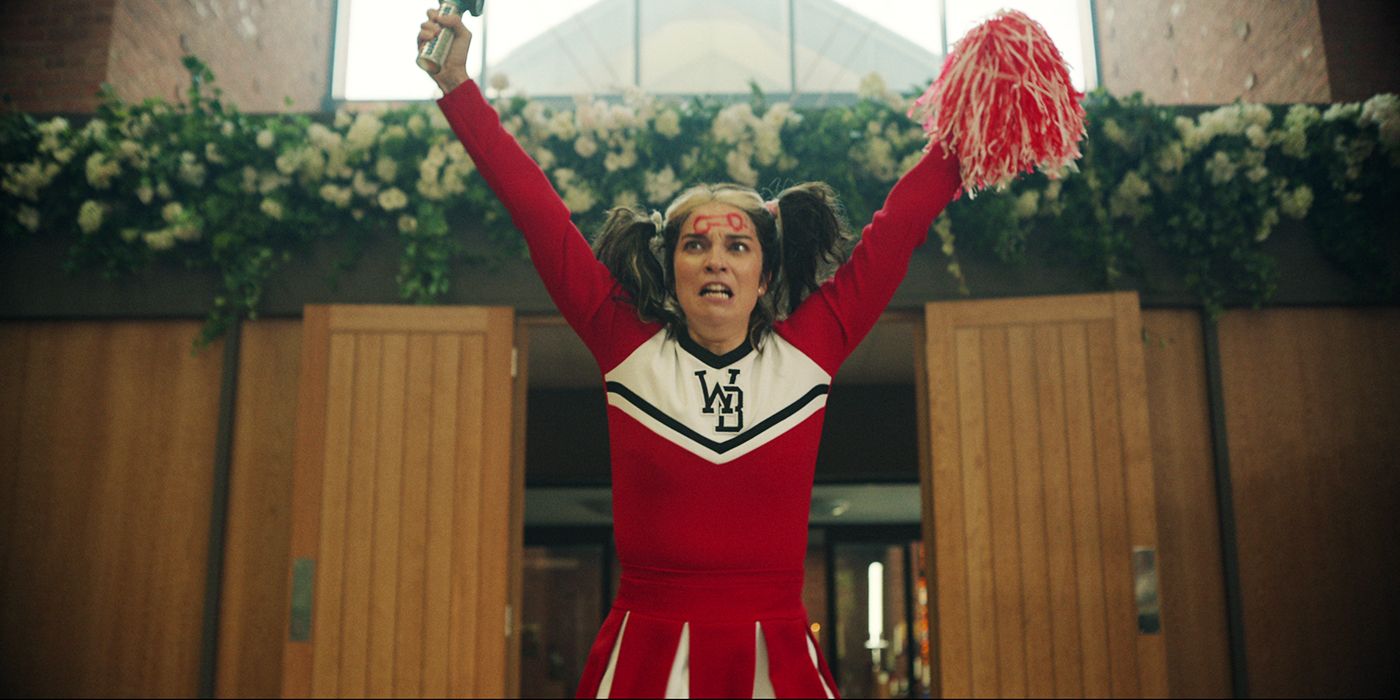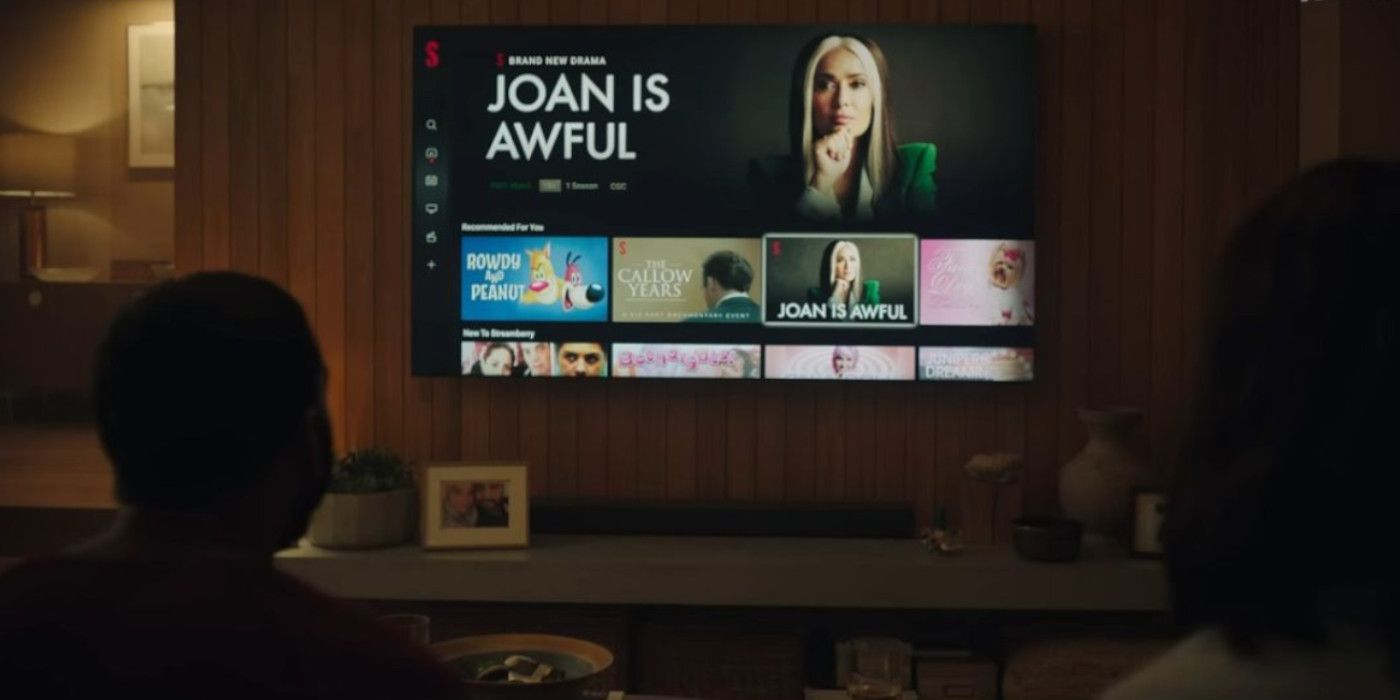
The Mind-Blowing Netflix Black Mirror Episode That Stunned Critics

Black Mirror's daring new episode takes a thought-provoking jab at Netflix's true-crime obsession, raising questions about the streaming giant's exploitative tendencies
The latest season of Black Mirror on Netflix, Season 6, takes a ironic stance towards the streaming platform that produces it. Known for its dystopian social commentary and cautionary tales about sinister technologies, the series returns with five new thought-provoking and mind-blowing episodes. The new season features a star-studded cast, including Salma Hayek, Aaron Paul, and Zazie Beetz. After a hiatus since its fifth season in 2019, Black Mirror's comeback on Netflix is highly anticipated and has the potential to be a culture-changing moment in 2023.
Interestingly, Season 6 of Black Mirror includes instances and themes that seem to contradict Netflix's overall image. Despite the potential damage to its reputation or the highlighting of past criticisms, the streaming company has allowed the content to be aired. Black Mirror has always been critical of the potential dangers and moral issues surrounding commonly used technologies in entertainment, such as cameras, television programs, and popular social apps. In Season 6, the series specifically targets the entertainment industry in various fresh ways, not holding back when it comes to potentially insulting Netflix itself with surprising parallels.
Loch Henry Calls Out Netflix's Exploitation Of True-Crime Stories
Black Mirror season 6, episode 2 serves as a powerful critique of the exploitation faced by real-life individuals involved in true crime narratives. Loch Henry skillfully depicts the harsh reality surrounding the traumatic experiences of those connected to heinous crimes, which are then transformed into binge-worthy content by streaming services for entertainment purposes. The thought-provoking ending of Loch Henry's portrayal emphasizes that those directly affected by popular true crime docuseries or fictional portrayals of real-life serial killers are often disregarded, marginalized, and harmed by the individuals involved in their production.
In recent years, Netflix has faced criticism for this very issue, with their series Monster, focusing on the cannibalistic serial killer Jeffrey Dahmer, drawing significant scrutiny in 2022. Critics have condemned Netflix and creator Ryan Murphy for failing to provide the deserved recognition to the victims and families connected to the true crime story. Loch Henry sheds light on a dangerous yet prevalent trend in Western society that allows for the glorification of killers and their gruesome crimes. Interestingly, while Netflix and other streaming giants contribute to the perpetuation of this form of entertainment, they also allow one of their most popular series, Black Mirror, to openly critique it on their platform.
Loch Henry Isn't Black Mirror Season 6's Only Brutal Netflix Criticism
Black Mirror season 6, episode 1 titled Joan Is Awful delves into the exploitative nature of streaming services by depicting the portrayal of people's real lives on screen for entertainment purposes. The episode cleverly satirizes Netflix through a fictional streaming platform called Streamberry and even goes as far as introducing various employees working for this imaginary service. By humorously highlighting the potential for real-life streaming giants to collect user data without their explicit knowledge through unread terms & conditions agreements and covertly monitor viewers to create CGI content, the episode sheds light on the possibility of a "Big Brother" dystopian future for platforms like Netflix or "Streamberry".
Why Netflix Let Black Mirror Criticize It So Openly
Netflix's approval of Black Mirror's self-reflexive criticisms may seem peculiar, but it actually demonstrates their willingness to embrace satire. By allowing the show to reveal the behind-the-scenes aspects of content creation, Netflix is reinforcing the satirical nature of the commentary. This decision implies that the show's portrayal of the streaming service's secret methods is not based on reality. Furthermore, Netflix has previously approved instances of self-criticism in other series like American Vandal and Blockbuster, without any negative impact on its reputation or viewership. While the criticisms in Black Mirror may primarily target Netflix, they also serve as a critique of the entire streaming and entertainment industry.
Netflix's inclusion of self-mockery in the first two episodes of Black Mirror season 6 appears to be a strategic step towards establishing a more connected Black Mirror universe. However, the justification provided in the user agreement for allowing Streamberry to engage in defamation without consequences or prior consent is clearly absurd, considering the ethical limitations of terms and conditions contracts. It is worth noting that Black Mirror creator Charlie Brooker attempted to write a season 6 episode using ChatGPT, but was unsuccessful. This suggests that Netflix finds the idea of relying on a supercomputer to generate content to be comical. By presenting this concept as an absurdist fantasy in Black Mirror, Netflix may have made a clever marketing move.
















